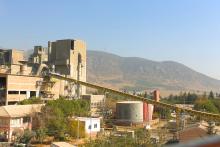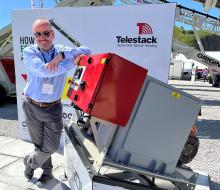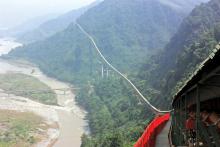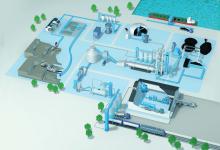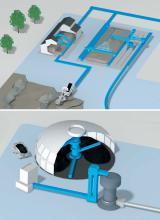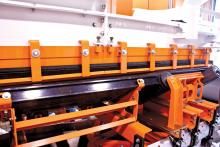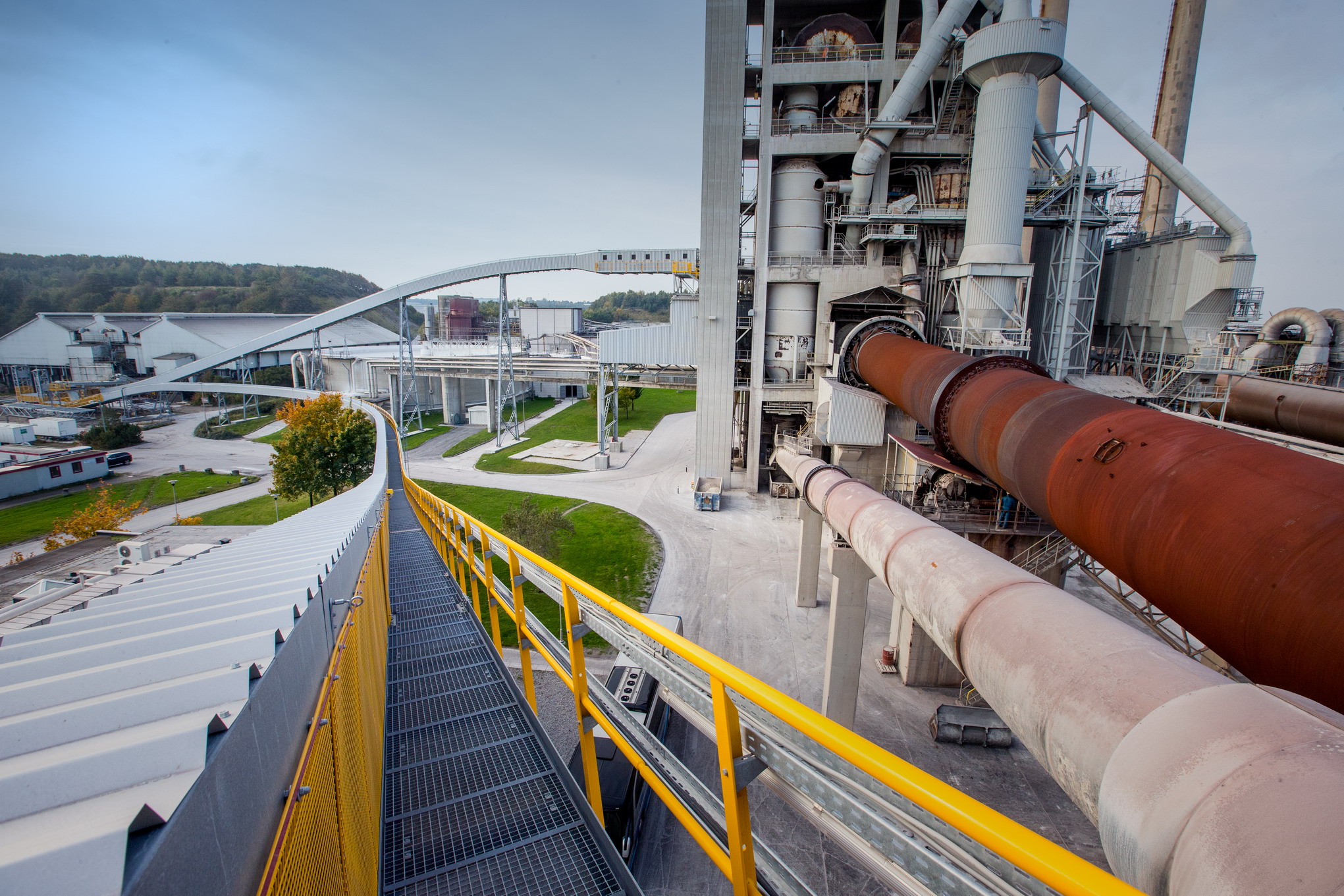
Cement producer
Beumer says the core of these systems is represented by innovative Pipe Conveyors where the enclosed conveying systems ensure an environmentally safe, dust-free and low-energy transport of fuels and raw materials.
Aalborg Portland is a subsidiary of the Italian cement group
In addition to the main plant in Aalborg, Denmark, it has further production plants in China, Egypt, Malaysia, Italy, Turkey and the USA, as well as numerous sales offices.
The production of cement has always been one of the most energy-intensive operations, and to avoid expensive primary fuels such as carbon, gas and oil, and to produce in more economic and sustainable way, Aalborg Portland has relied on alternative fuels for the incineration process in the calciner for several years.
“In 2014 we decided to optimise and enlarge the existing system", says Ole Strøm Hansen, project manager of Aalborg Portland.
Until then the manufacturer transported the fuels to both calciners through long pneumatic conveying lines. However, the producer says it did not have an initially positive experience, as pneumatic conveying lines are extremely maintenance-intensive and susceptible to breakdown.
“In addition, we intended to increase the capacity of the existing conveying line to 20tonnes per hour per calcinator,” explained Hansen.
With the new concept, the residue derived fuel (RDF) is transported for the calciner and the solid recovered fuel (SRF) to the main burner. The solution is to transport the alternative fuels from the storehouse to the rotary kiln area as well as the gravimetric feed of both the calciner and the main burner.
The decision was made to reduce the length of the pneumatic conveying line and to replace the remaining line by a mechanical transport system, but the manufacturer also wanted to install a completely new conveying line for the main burner feeding, with a capacity of up to ten tons per hour.
“We evaluated different variants of mechanical transport systems,” says Hansen.
Finally, the company opted for a single-source solution of Beumer Group based on the innovative Pipe Conveyor technology.
To support producers of cement in the alternative fuels and raw materials field, Beumer Group has set up a complete business segment dedicated to AFR systems.
“Due to the different grain sizes and the various compositions of these alternative fuels, it was necessary to develop an individual system solution for each line,” says Tomas Hrala, project manager at Beumer Group.
To enable the transport of the pre-processed fuels from the storehouse to the calciner and to the main burner, Beumer Group supplied and installed respectively one Pipe Conveyor as the heart of these systems as well as the accompanying equipments.
“This conveying technology is not only eco-friendly and requires low maintenance. Its enclosed type of construction protects the environment safely from material falling and emissions. Another advantage is the lack of dust development on the running line,” says Hrala.
The Pipe Conveyor of the calciner has a diameter of 350mm, a length of 135m and can transport up to 50tonnes/hour to an intermediate hopper with a volume of 35m³.
This hopper is equipped with an activator and two double discharge screw conveyors, and distributes the material in two feeding and pneumatic conveying lines to both calciners. The two new pneumatic conveying lines to the calciner with rotary vane feeders and blowers were completely dimensioned and supplied by Beumer Group.
The heart of the line for the main burner is a Pipe Conveyor with a diameter of 200mm and a length of 201m. It achieves a conveying capacity of 12tonnes/hour and is equipped with a spillage scraper conveyor for minimising the cleaning, as well as a de-dusting filter.
“We are very pleased with both single-source systems,” says Ole Strøm Hansen of Aalborg Portland.
“The transport systems and the accompanying equipments are intertwined to ensure steady fuel feeding.”

